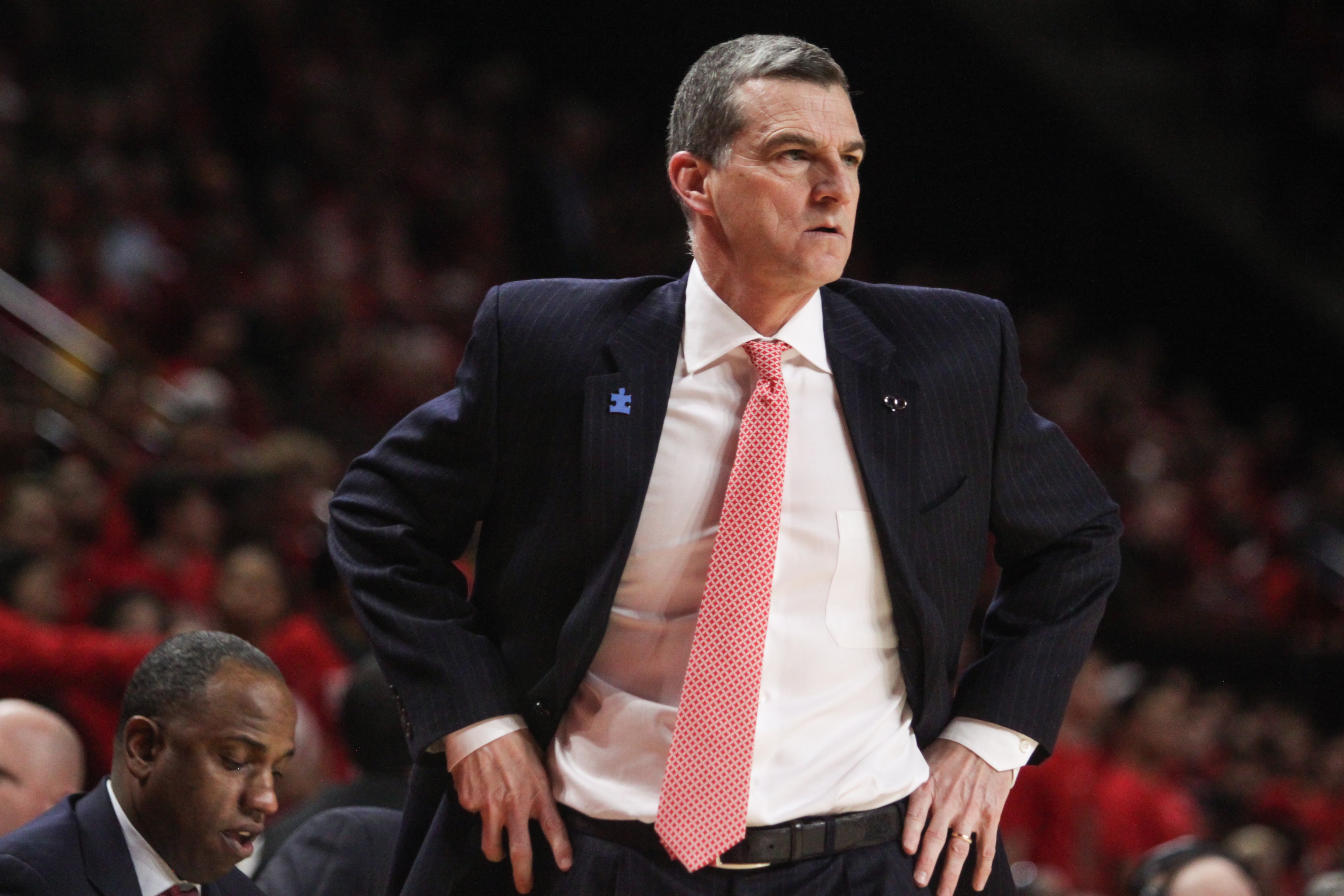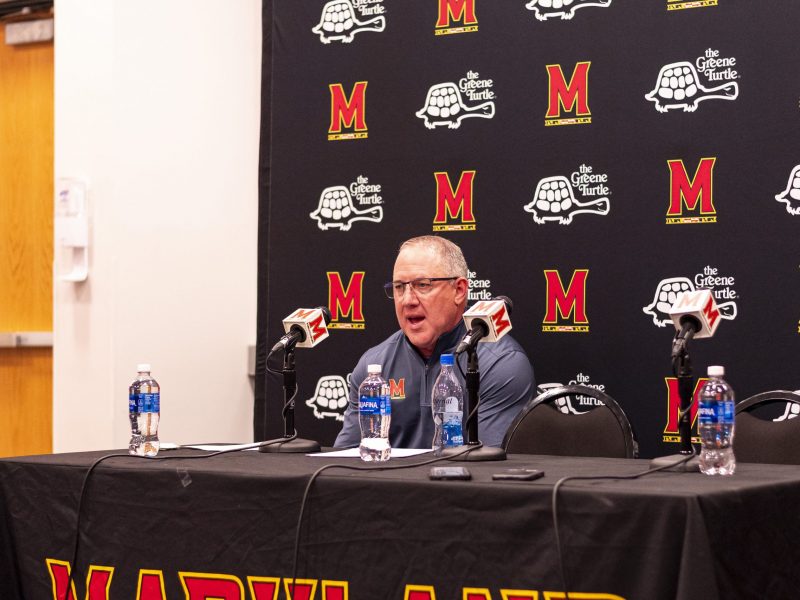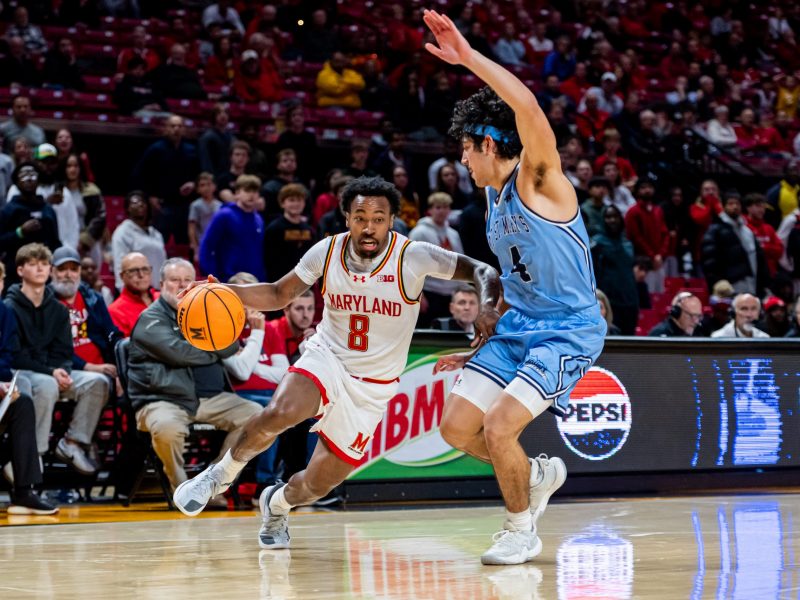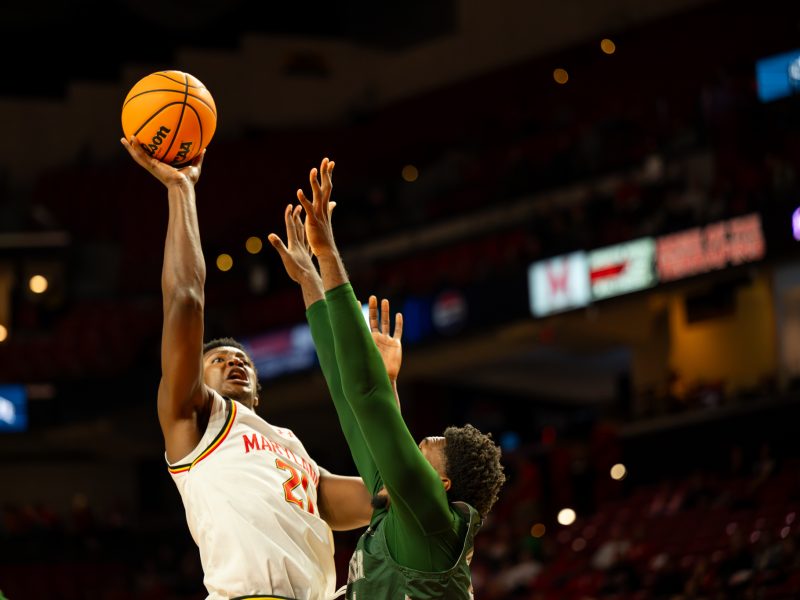With five minutes and 34 seconds remaining in the Maryland men’s basketball game Sunday, Wisconsin guard Bronson Koenig’s layup bounced off the rim. Guard Brevin Pritzl, though, sprinted from the opposite side of the floor to tap the ball in and give the Badgers a 10-point lead.
On Wisconsin’s next possession, forward Nigel Hayes missed a jump shot, but nobody boxed out Pritzl again, allowing him to get the offensive rebound. He passed the ball to the perimeter, and Koenig drained a shot from just inside the 3-point line.
Those sequences represented how Wisconsin dominated Maryland on the glass and in the paint, outrebounding the Terps, 44-27, including 18-5 on the offensive glass. That allowed the No. 16 Badgers to score 19 second chance points and shoot 13 more field goals than No. 24 Maryland as they pulled away in the second half for a 71-60 win in Madison.
“It was extremely physical,” Wisconsin coach Greg Gard said. “We didn’t fade away. We went strong through people. We drew fouls. When we do it, that makes us really good. We’ve always been a program that wants to pound it inside.”
[READ MORE: Maryland center Michal Cekovsky fractured his ankle and will miss rest of season]
Maryland has endured season-long rebounding problems after losing center Diamond Stone and forward Robert Carter Jr. via the NBA draft in May. The Terps’ big men have struggled to stay out of foul trouble while forward Justin Jackson leads the squad with 6.2 rebounds per game.
Maryland ranks 11th in the Big Ten in rebounding margin (+1.2). Those issues might worsen with center Michal Cekovsky, who averaged 7.6 points and 2.8 rebounds per game while battling injuries, out the remainder of the season due to a fractured left ankle he suffered late in the contest Sunday.
Coach Mark Turgeon said Wisconsin would be the “biggest” team Maryland has played this season, even after the Terps faced Purdue. The Boilermakers’ three leading scorers are 6-foot-8 or taller, including Naismith College Player of the Year candidate Caleb Swanigan, but the Badgers lead the Big Ten with a +8.4 rebounding margin.
“They were a hard matchup for my team last year,” Turgeon said during a conference call Saturday, “and we were big.”
Hayes and forward Ethan Happ were the catalyst for Wisconsin’s dominance in the paint, combining for 41 points and 17 rebounds. Happ had his way with whichever big man Turgeon put on the floor, while Hayes hit jump shots and attacked the paint, forcing Maryland’s forwards to guard him near the perimeter.
Both players struggled from the field in the first half as Wisconsin shot 28 percent as a team. Despite allowing the Badgers to attempt 20 free throws, Maryland grabbed just one fewer rebound than its foe and entered the break up, 33-27.
But out of intermission, Maryland couldn’t contain Wisconsin inside.
The Badgers outrebounded the Terps, 26-11, in the frame. Forward L.G. Gill fouled out in eight minutes, while Cekovsky and center Damonte Dodd each picked up four fouls after grabbing just two rebounds each. Three other Maryland players racked up three fouls.
While the Badgers shot 2-for-12 from beyond the arc, they finished 21-for-37 from the free throw line, attacking the paint on almost every possession.
Guard Melo Trimble, whose game-high 27 points kept Maryland’s hopes of a win alive, said the Terps preferred to foul Wisconsin instead of allowing easy looks. The tactic stemmed from Wisconsin holding the third-worst free throw percentage in the Big Ten (66.5 percent).
The Badgers made 57 percent of their freebies Sunday, including nine of 17 in the second half, but they still outscored Maryland, 44-27, in the frame.
“We just got comfortable with the six-point lead that we had,” Trimble said.
“We played more mature in the second half,” Gard added. “Maybe we grew up in the 15 minutes we sat in the locker room.”
Maryland’s loss puts them a game behind Wisconsin and Purdue for first place in the conference standings. While the Terps are likely to make the NCAA tournament for the third consecutive year, their lack of an inside threat could present matchup problems in the postseason, especially without Cekovsky.
“No matter how good your offense is,” guard Kevin Huerter said, “if they score — it felt like every time down the court — you’re not going to win the game.”



